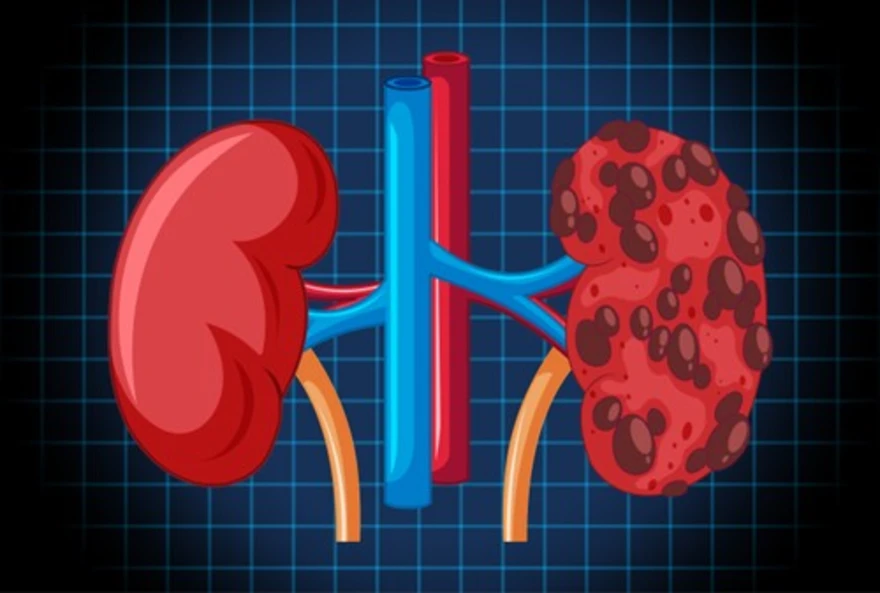Lp(A) Lipoprotein(A) Serum Test
Lipoproteins Test Overview
Lipoprotein is a lipid and protein component found in the blood. It helps to transport the cholesterol through the blood to the cells. It is of two types high density lipoprotein (HDL) and the low density lipoprotein (LDL). Lipoprotein (a) is a type of LDL that carries the cholesterol to the cells in the arteries. High levels are associated with cardiovascular diseases.
Lp(a) is also known as lipoprotein(a). It carries cholesterol throughout the body. Blood clots or plaques in the arteries are more likely to form when Lp(a) levels are high. Lp(a) can raise the cardiovascular disease risk as a result of this impact. Controlling total cholesterol can help lower this risk.
Whether a person has high Lp(a) levels appears to be influenced by genetic factors. There is some proof, nevertheless, that their nutrition and way of life may also have an impact on them. To fully comprehend how lifestyle and dietary choices affect high Lp(a) levels, more research is required. According to research, Lp(a) levels are increased in roughly 20% of the world's population. If a doctor has a suspicion that a patient's Lp(a) levels could be high, they can perform a blood test to find out.
Lp(a) serum testing is done to determine the blood's amount of lipoprotein (a).
Written by: Dr.Shibani R, Medical Writer, Medical Affairs
Reasons for Undergoing the Lipoprotein A Test
The Lp(A) Lipoprotein(A) serum test is not a routine test but is recommended in specific circumstances to assess cardiovascular risk. Here are the main reasons for undergoing this test:
- Family history of early cardiovascular disease, especially among first-degree relatives.
- Personal history of cardiovascular disease with only slightly raised cholesterol or lipid levels.
- Inherited higher risk of high cholesterol, such as familial hypercholesterolemia.
- Unexplained high cardiovascular risk despite normal or only slightly elevated LDL cholesterol levels.
- To inform treatment decisions related to lowering cholesterol and reducing the risk of heart problems, especially if LDL cholesterol levels do not decrease as expected with current medications.
List of Parameters Considered During the Lipoprotein A Test
The Lp(A) Lipoprotein(A) serum test measures the level of lipoprotein(a) particles in a sample of blood. Here is what the parameter indicates:
- Lipoprotein(a) Levels: The test measures the amount of lipoprotein(a) in milligrams per deciliter (mg/dL) or nanomoles per liter (nmol/L) of blood. High levels of Lp(a) indicate an increased risk of cardiovascular diseases such as atherosclerosis, coronary artery disease, stroke, and thrombosis.
Home Collection for Lipoprotein A Test Near You
Metropolis Healthcare offers a convenient home sample collection option for the Lp(A) Lipoprotein(A) Serum Test. A trained phlebotomist will visit your home to collect the blood sample, ensuring comfort and safety. The samples are handled with the highest standards, ensuring no compromise on testing accuracy. You can expect timely and reliable results from the comfort of your home. Metropolis Healthcare is committed to making healthcare accessible and providing quality diagnostic solutions conveniently at your doorstep.
Lp(A) Lipoprotein(A) Serum Test Price
Metropolis Healthcare is a leading diagnostics centre and pathology lab in India equipped with the latest state-of-the-art technologies that provides the Lp(A) Lipoprotein(A) Serum Test with a clear pricing structure.
The Lp(A) Lipoprotein(A) Serum Test Price in Mumbai is ₹ 1,320 .
We are committed to deliver accurate and quality results from the best labs in India with complete transparency regarding test cost and turnaround time. No matter where you are, we strive to offer patients high-quality service that is affordable and accessible.
Frequently Asked Questions
Lipoproteins test is prescribed to understand how well the cholesterol is transported in the body. This gives a more detailed idea of the risk of heart diseases than the routine cholesterol screening and may help in early detection of potential cardiovascular problem. This may be done in cases of :
- Family history of early age heart diseases.
- LDL levels are found to be high despite medication
- Family history of hypercholesterolemia
- Blood vessel diseases with normal triglyceride and total cholesterol levels
- Self history of heart diseases with or without surgery.
lipoproteins test measures the amount of lipoprotein (a) component in the blood. This is a predictor of the risk of heart diseases.
During Lipoproteins test blood sample is taken from a vein in your arm, using a small needle. After the needle is inserted, a small amount of blood will be collected into a test tube or vial. You may feel a little sting when the needle goes in or out. This usually takes less than five minutes.
High lipoprotein (a) levels lead to cholesterol being deposited in the arterial walls which causes thickening or clogging of the arterial walls also known as "atherosclerosis". This disrupts the flow of blood to the heart and other vital organs. This increases the risk of heart diseases, strokes, and other peripheral arterial diseases. Lp (a) being a specific test gives a clearer picture of the risk of heart diseases as compared to routine cholesterol tests. Certain conditions may contribute to high lipoprotein levels such as uncontrolled type 2 diabetes, chronic kidney disorders, hypothyroidism and certain hormonal disorders.
It is uncommon to assess cholesterol levels with the Lp(a) test. However, if the findings of additional blood tests indicate a higher risk of heart disease, your doctor may decide to perform this test. This test may also be prescribed by your physician if you -
- Have recently experienced a heart attack or stroke.
- Have a history of heart problems that began before the age of 55.
- Have an established heart problem or other peripheral arterial diseases.
- Are postmenopausal and have higher heart diseases risk factors, such as high blood pressure, diabetes, or any other vascular disorders.
-
Your doctor may prescribe this test if you exhibit certain symptoms. He may also prescribe this test if you have a medical condition that puts you at a greater risk of developing artery blockages, such as -
- Early heart or vascular illness in the family health history (before age 55 for males and before age 65 for females).
- Having high LDL cholesterol despite taking medication to decrease it.
- Heart disease or blood vessel disease, particularly if your cholesterol and triglyceride levels are normal without taking medication to lower them.
- Signs of familial hypercholesterolemia, an inherited condition.
- Multiple heart attacks or multiple operations to unblock heart arteries that were obstructed or narrowed (angioplasty).
You must fast for 12 hours before the Lp(a) test to properly prepare. This implies that before the test, you cannot drink or eat anything other than water. You will also be requested to give up smoking 12 hours before the test if you smoke.
In addition to the Lp(A)Lipoprotein(A) Serum test, your doctor may prescribe other tests to check for HDL or LDL levels.
Lp(a) is also known as lipoprotein(a). It is a protein. It carries cholesterol throughout the body. Blood clots or plaques in the arteries are more likely to form when Lp(a) levels are high.
Protein loss, oedema, and increased blood cholesterol and lipoprotein levels are all symptoms of the kidney condition nephrotic syndrome
Lp (a) should not exceed 75 nmol/L or 30 mg/dL [15]. Most people (about 70%) fall within this range.
- Lp(a) Test
- Lipoprotein(a) Test
The Lipoprotein A test, also known as the Lp(A) test, is a blood test that measures the level of lipoprotein(a) particles in the blood. Lipoprotein(a) is a type of lipoprotein that transports cholesterol and is structurally similar to LDL cholesterol but contains an additional protein called apolipoprotein(a).
The cost of a Lipoprotein A test can vary depending on the location, laboratory, and insurance coverage. In many cases, insurance companies do not cover this test as it is not routine, so out-of-pocket costs may apply.
The Lipoprotein A test detects the level of lipoprotein(a) particles in the blood, which can indicate an increased risk of cardiovascular diseases such as heart attacks, strokes, and atherosclerosis.
The test reports indicate the level of lipoprotein(a) in the blood, typically measured in mg/dL or nmol/L. Normal values are usually below 30 mg/dL, while levels above 50 mg/dL are considered high risk for cardiovascular disease. The exact ranges may vary slightly among different laboratories.
A high level of lipoprotein(a) indicates an increased risk of cardiovascular diseases. High Lp(a) levels can contribute to the formation of plaques and blood clots in the arteries, increasing the risk of heart attacks, strokes, and other cardiovascular events.
The benefits of the Lipoprotein A test including an early detection of potential cardiovascular problems, identifying individuals at higher risk for cardiovascular disease who may require more intensive lipid therapy, and informing treatment decisions related to lowering cholesterol and reducing cardiovascular risk.
Lp(a) differs from LDL (low-density lipoprotein) in that it contains an additional protein called apolipoprotein(a). This protein can prevent enzymes from dissolving blood clots and has a higher affinity for the vascular wall, contributing to the development of atherosclerotic lesions.
Yes, if a family member has high Lp(a) levels, especially if there is a family history of early cardiovascular disease, it is advisable to get tested. Genetic factors determine Lp(a) levels, so family members may also be at risk.
Lowering Lp(a) levels is challenging due to their genetic determination. However, daily niacin may lower Lp(a) levels by 20-30%, lipoprotein apheresis can remove Lp(a) and LDL cholesterol from the blood, and medications that inhibit PCSK9 may also be considered in some cases.
The Lipoprotein (A) test itself is a standard blood test and carries minimal risks, such as slight pain or bruising at the needle site. There are no significant health risks associated with the test itself.
The Lipoprotein A test is used to identify individuals at high risk for cardiovascular diseases such as atherosclerosis, coronary artery disease, stroke, thrombosis, and aortic stenosis.
Some medications, such as those that inhibit PCSK9 or daily niacin, can affect Lp(a) levels. However, the test itself is not typically affected by medications unless specified by your healthcare provider.
Fasting may be required if the test is combined with a lipid panel, which checks for cholesterol and triglyceride levels. Fasting is generally not required for an Lp(a) test alone. However, your healthcare provider may give specific instructions based on your individual needs or additional tests being performed.
Several health conditions can affect the Lp(a) levels, including hypothyroidism, uncontrolled diabetes, kidney disease, nephrotic syndrome, and low estrogen levels.
The reports for the Lipoprotein A test are available within 4 hours, after the sample is collected.
Ratings & Reviews (0)
Why Metropolis?
Metropolis has a team of 200 senior pathologists and over 2000 technicians delivering diagnostic solutions in the areas of routine, semi specialty and super specialty domains like Oncology, Neurology, Gynaecology, Nephrology and many more.
We offer a comprehensive range of 4000+ clinical laboratory tests and profiles, which are used for prediction, early detection, diagnostic screening, confirmation and/or monitoring of the disease.





















 WhatsApp
WhatsApp







